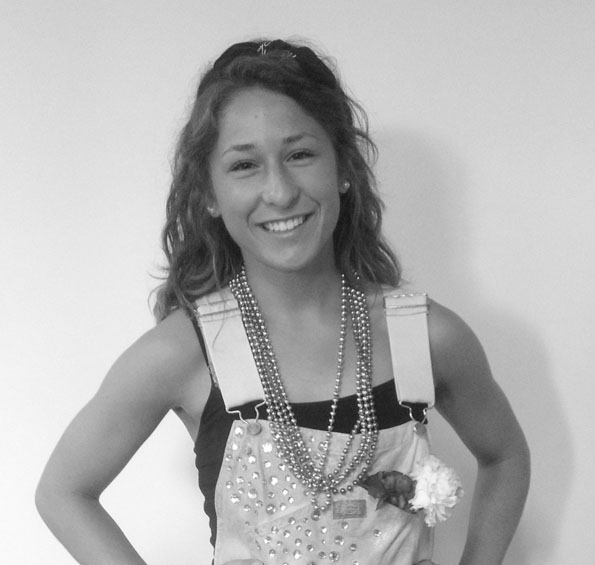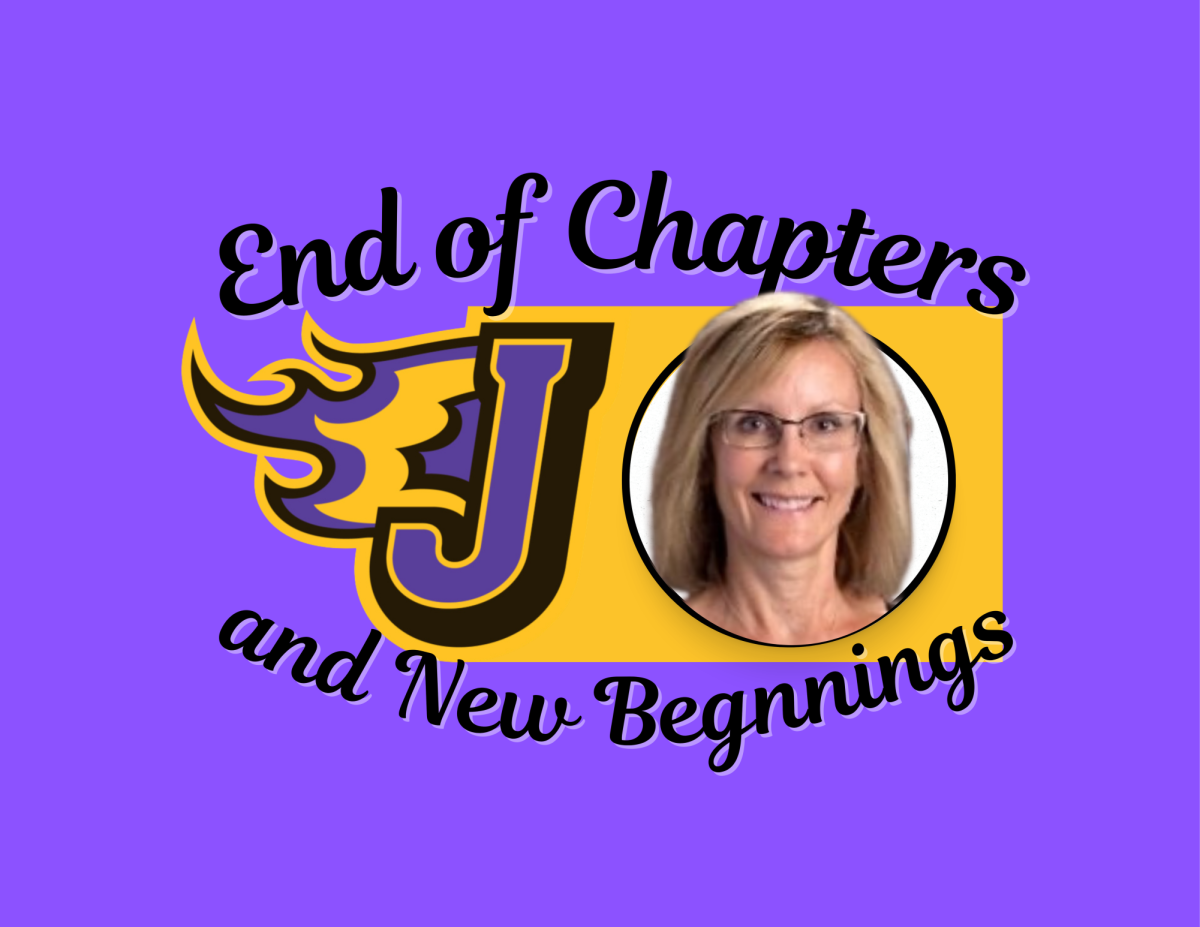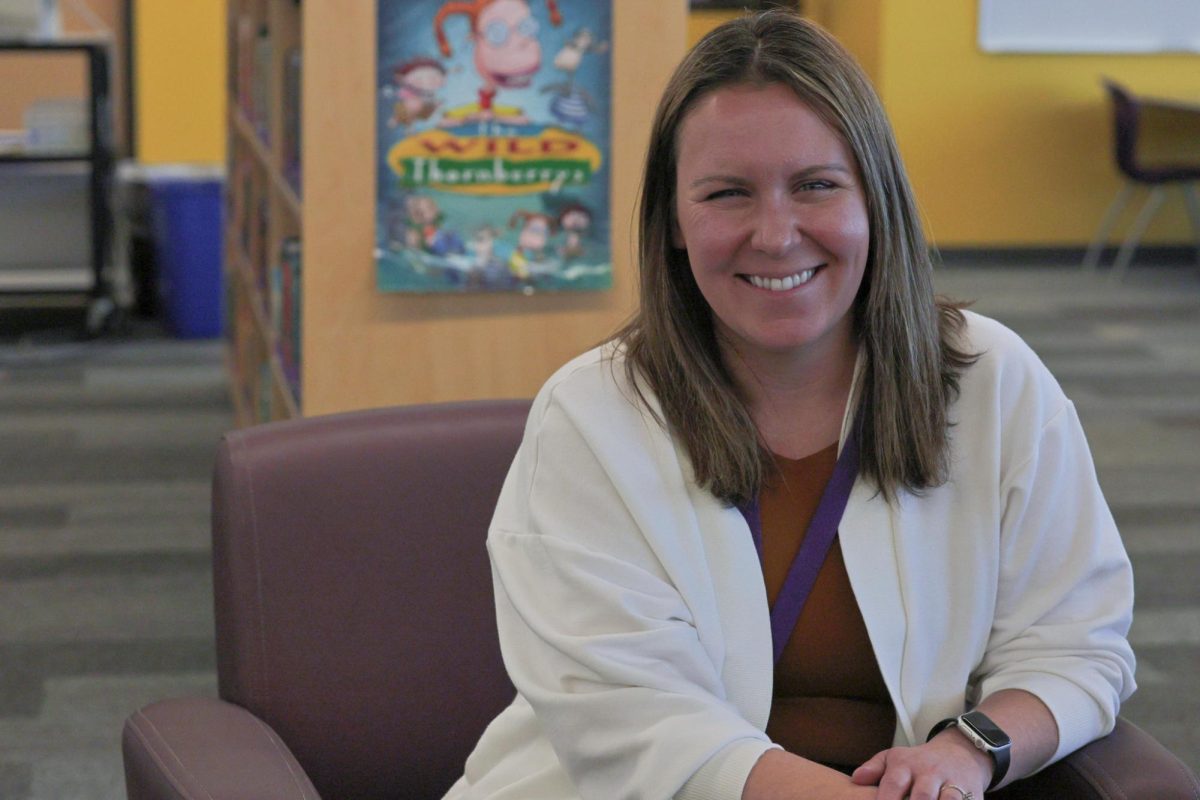Many students the night of prom reach far down into their wallets and paying extensive amounts of money for the perfect dress, an elegant dinner, and a limo to make the event memorable.
Doug Applegate, father of sophomore Hezekiah Applegate, saw this as an opportunity to reach out to high school students to look at what they are spending. Before Prom, an organization created by Applegate, encourages students to think savvy during prom season.
“Basically what we are trying to do is have juniors, seniors and sophomores going to prom save money, and the money they do save is they donate to a better cause,” said Hezekiah.
Examples could range from finding a cheaper dress to having a parent make dinner versus dining out.
The Before Prom set up at JHS would donate the money left over from the individual’s prom budget to Meals from the Heartland.
Doug came up with a solution six years ago while reading the newspaper.
“As I was reading, I saw that on average teenagers spend $500-$600 on prom,” Applegate said. Applegate is the youth group leader of the Junk Yards at Prayer Ridge church in Ankeny. He calculated that if all 20 of his students saved that much money versus spending it on Prom, their youth group alone could save $10,000. “It may seem like a lot of money for such a small group to raise, but that money was being spent anyways.”
Ankeny High School students took part in the first year of Before Prom and were able to donate close to $2,000 to Gospel for Asia, an organization that builds wells in India. Doug believes that students will benefit from spending less during prom season.
“The one thing that I think is cool about that is in five years, 10 years when kids come back to their class reunion they can come back and say ‘Hey, I can did prom a little differently, a little bit cheaper, and I was able to donate to this cause, and for the past five to 10 years there has been a working well that’s been giving people clean water,” Doug said. “It’s something that keeps giving, not just a one time give. They can be apart of something that’s continuous.”
Applegate encouraged his youth group students to save money where they could during prom season. After continuing success, Before Prom had made its way to Johnston with the help of Hezekiah and senior Victoria Trost. Trost had heard about Before Prom from Ankeny students sharing their experiences and instantly took an interest of the organization.
“I had mentioned about doing it last year, but not very many people were interested,” Trost said. “It’s sometimes easier to just spend the money versus finding ways to save it.”
Chris Beguhn, science teacher and supervisor of JHS student council, also sees how some teens struggle with saving a buck or two, especially for prom.
“Sometimes our Johnston kids are about having the biggest or the best or the most expensive, so it will take a little bit of a culture shift to make [Before Prom] go,” Beguhn said.
To help promote students to save, Doug was able to arrange for a dinner to be held for the Ankeny Prom the first year Before Prom took off. Granite City Chef cooked for free for the participating students. Although a continuing success, Doug is afraid that Before Prom will be centered solely on the dinner. “I’m always trying to educate that you can save anywhere. I don’t want to center around the dinner,” Doug said. “Being creative and thinking individually about saving money is a way kids can go about Before Prom.”
Although Before Prom did not raise money this year, Hezekiah looks forward to promoting it next year.
“I plan on advertising a lot more next year,” Hezekiah said.
He plans on educating students about the organization before spring break.
“Spring break is when people start shopping for prom, and so I want to tell people about it before they start shopping.”
Before Prom is a new concept that students here have the opportunity to be apart in. The lack of success this year only further determines Hezekiah to tell people more about it for the year to come.
“It’s a different idea that helps people understand that the money they spend can go towards a great cause,” Hezekiah said.







